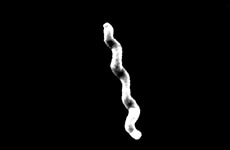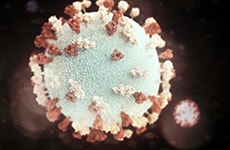Nebraska

- State Population: 1,967,923
- Local Health Departments: 19
- Frequent Public Health Emergencies: Tornadoes, Flooding, Fires
- Key Emergency Operations Center Activations:
2020 – COVID-19 Pandemic - CDC PHEP Funding:
FY 2022: $5,483,678
FY 2021: $5,446,141
FY 2020: $5,726,102 - Public Health Crisis Response Funding:
Mpox 2023 funding: $219,930
COVID-19 2021 funding: $12,313,606
COVID-19 2020 funding: $6,546,664
- Other: 6*
*Includes IT specialists, administrative staff, statisticians, and other positions
1 Career Epidemiology Field Officer
- Community Preparedness
- Public Health Laboratory Testing
- Emergency Public Information and Warning
- Volunteer Management
- Public Health Surveillance & Epidemiologic Investigation

Nebraska’s communities rely on clinical labs to quickly identify dangerous pathogens, particularly during emergencies like a biological terrorism incident or an infectious disease outbreak. Because these laboratories handle potentially dangerous pathogens, it is critical that laboratory staff are trained in the most effective identification methods.

In Nebraska, PHEP supports a CDC veterinary scientist who improves surveillance, strengthens outbreak response, conducts epidemiologic investigations, and develops the public health workforce. In March 2017, the scientist led a team investigating an outbreak of severe gastrointestinal illnesses. They identified the culprit as campylobacter jejuni. Using a questionnaire, they gathered data about food consumption, drinking water sources, exposure to animals, and illnesses from members of the affected community, and traced the source to a nearby animal feeding operation. The operation pumped livestock wastewater through a broken irrigation system, which likely contaminated two of the community’s wells. With this knowledge, the community stopped using these wells immediately, preventing further illness.

During a mumps outbreak affecting four children’s summer camps in April 2016, PHEP support ensured state and local health departments could quickly detect the illness and respond appropriately. Because of PHEP support, state and local health departments provided vaccinations, trained epidemiologists, public information, and subject matter expertise. PHEP funded roughly 400 immunization boosters for mumps as well as active monitoring for signs and symptoms throughout the course of the summer camps. Collaboration between local health departments, the state public health department, and the Nebraska Public Health Laboratory, made possible by PHEP, undoubtedly helped prevent further spread during these disease events.